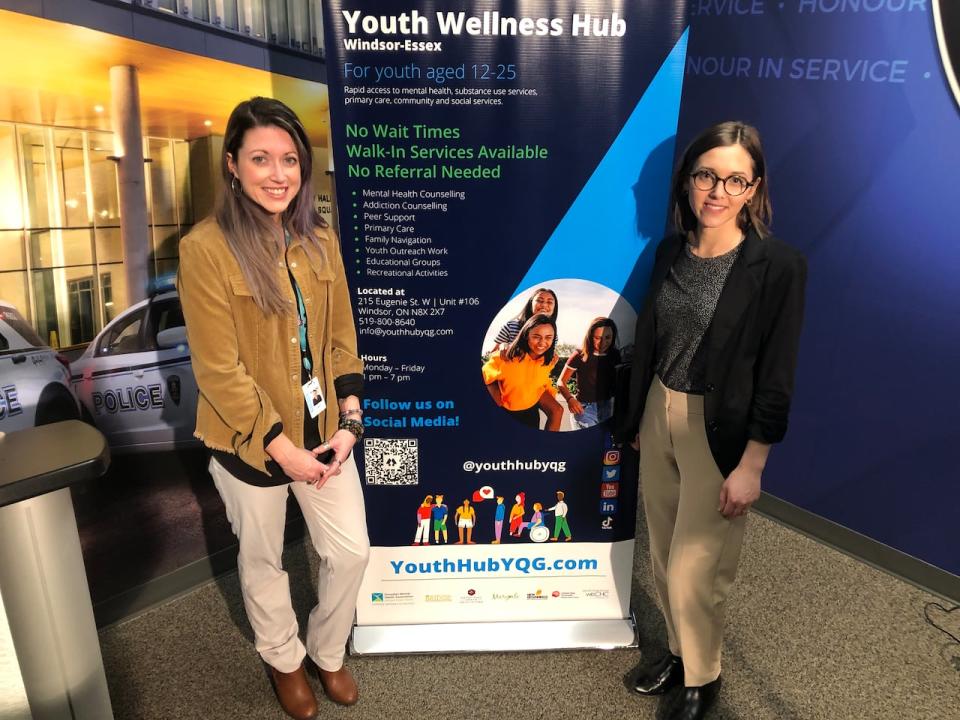New program aims to help Windsor kids who repeatedly go missing

When youth in Windsor go missing, they go missing repeatedly.
According to Windsor Police, fewer than 100 young people between the ages of 12 and 25 went missing but those same youth were reported missing more than 650 times.
But a new program launched by Windsor police and the Windsor Youth Wellness Hub hopes to help protect kids when they're missing and keep it from happening again.
"Children and young people who frequently go missing from the circle of care are at significant risk of harm, regardless of the length of time away," said Ron Bercovici, the missing persons coordinator for the Windsor Police Service.
"They face risks of sexual and criminal exploitation not only while away, but from the problems which caused them to go missing."
The Return Support Discussion program will give youth who have run away or gone missing from home a chance to connect with a peer support worker to address both what happened while they were missing and how to respond when they come back.
It's a gap in care that Bercovici said will address the issues youth faced while absent — and the underlying causes of why they were missing to begin with.
The program is offered in partnership with the Youth Wellness Hub.
"An advantage of offering these support sessions at the Youth Wellness Hub is the opportunity to introduce youth we work with to a space they can always come to on a drop in basis to hang out, to cool off, or to get support," said Angela Thompson, the operations manager for the youth wellness hub.

A new program will support youth who return or are found after an episode as a missing person. Lexi Conlon, left, is a peer support worker for the Youth Wellness Hub, and Angela Thompson, right, is the operations manager for the hub. (TJ Dhir/CBC)
"Youth in these situations are not troubled, they're not choosing a bad path. They are individuals who need support."
While the program launched Tuesday, it is awaiting its first referral and is the first of its kind in Canada, while its modelled on a similar program in the United Kingdom that has had success.
All youth who return home will be contacted by the program.
"We'll be reaching out to those used to let them know, 'Hey, we offer this support here. This is our peer support worker. Would you want to come in for a session and and talk?,'" Thompson said.
According to Bercovici, youth will often go missing when there's a stressor or situation they can't cope with in their life. While going missing provides some relief, it puts them at risk for exploitation in a variety of ways — and when they go home, the relief fades, meaning they may go missing again.
Missing youth account for about 20 per cent of all missing people in Windsor. But because many of them go missing more than once, they're nearly 70 per cent of all missing person incidents reported.
Lexi Conlon is one of the peer support workers at the Youth Wellness Hub. She says participation in the program is optional.
"We hope to mitigate that and create a space where you can come in and get support with the root causes of why they may have left home in the first place and how we can help with that going forward, whether it be helping keep them safe if there is a next time or making a plan so there doesn't have to be a next time," Conlon said.
"Windsor is a community with so many individuals who do want to make a difference for those who may be vulnerable or struggling, and I have so much hope this initiative will be an important step in helping those who need it."
The grant runs to March 31, and the Windsor police will report back then on the numbers. Youth will be automatically referred to the program, and the data will be used to help identify trends and ways to support youth proactively.
"We do have a volume of these incidents and every single incident is referred to to the hub," Bercovici said. "So you know realistically speaking we could have hundreds of incidents that were reporting."
The program is made possible with a $97,000 grant from the province. The funding also covers 200 backpacks stocked with the essential supplies needed by youth who are on the street, and 10 video game consoles that will go to local group homes to encourage social interaction between kids while in care.


